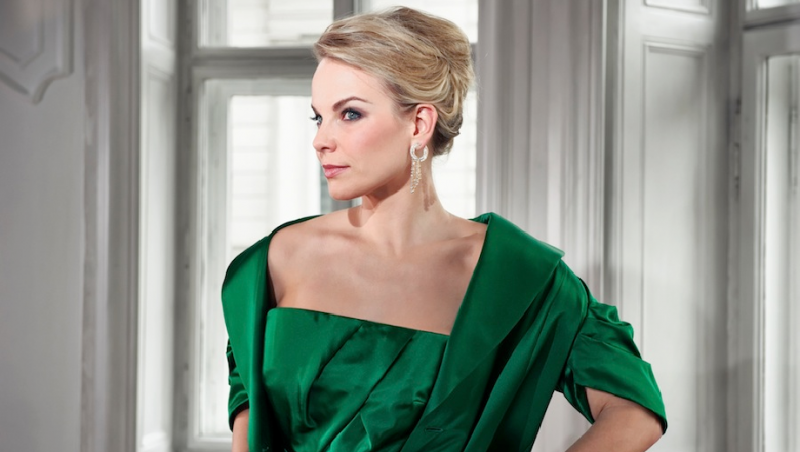Garanča’s Marguerite buoys a downscaled, disappointing “Faust”

The Metropolitan Opera has been cycling its way through the various Faust operas in recent seasons: the most popular of the bunch, Gounod’s Faust, last went up in 2013, and last season featured a well-received production of Boito’s Mefistofele.
The run of Berlioz’s La Damnation de Faust that opened Saturday afternoon was originally to have played for seven performances, in the 2008 production by Robert Lepage. But in June, after unspecified technical issues caused Lepage’s tech-heavy staging to run over budget (sound familiar?), the company scrapped three showings and adapted the remaining four into concert performances, a rarity for an enormous house with such massive resources.
Berlioz conceived of the work as a “légende dramatique,” not quite opera and not quite cantata; but if Saturday’s performance is any indication, this Faust doesn’t work without the theatrics. Its compact libretto doesn’t have enough character to portray the scene on its own, and in Saturday’s matinee most of its comic relief was met with dead silence from the house. As for the score, even its most emotionally affecting music is not dramatically vivid enough to carry a concert performance in the way that, say, Wagner’s Ring might. The ricochet bowing of the strings during Act IV’s descent into Hell is a clever way of suggesting a mad gallop, but it hardly evokes the everlasting terror of hellfire.
Edward Gardner’s half-hearted direction from the pit did not bring much life to the performance. He was at his best in tender sections such as the transition to Marguerite’s meadow in Act II, where he was able to draw a dreaming warmth out of the orchestra, and the gossamer texture of the closing chorus of angels was breathtaking. Yet throughout the afternoon, he struggled just to keep the ensemble together, often letting the orchestra run ahead even when he had only one singer to follow.
More generally, Gardner showed little sense of balance in his conducting, for the most part keeping all his forces at the same dynamic level. This was particularly glaring in the choral fugues, which turned into a muddle as a result. Under his baton, the orchestra blared and everyone over-sang; even the usually warm and full-toned Met Opera chorus sounded pale.
The work calls for just four soloists, and Saturday’s were all capable if not all at their best. Bryan Hymel, who plays the title’s ill-fated academic, owns one of the most powerful tenor voices around. On Saturday he often sounded pinched, struggling to fit his hefty instrument into a part that requires a flexible upper range. Lower down, his bright, brawny voice suggested urgent passion, but most of the role lies too high for him to sing with much color, as his top notes stretched or disappeared entirely.
Far more solid was Elīna Garanča, whose dark-grained mezzo-soprano was in peak form for her Marguerite. Her aria at the top of Act IV, “D’amour l’ardente flamme,” was the highlight of the afternoon, reflecting her complex mix of passion and fear in subtle phrases. Even when the music expressed her excitement through broken syllables that mimicked her heartbeat, the radiant warmth of her voice glowed on every note. Without the aid of sets, costume, or any theatrical framing, Garanča still managed an emotionally charged rendition of the aria, informed by a deep knowledge of her character. What a shame that one of opera’s most charismatic actresses didn’t have a chance to craft a full dramatic interpretation of this role.
Ildar Abdrazakov brought his usual rakish charm as Méphistophélès, the devil who induces Faust to bargain away his soul. His woody bass-baritone at times sounded a little gray, but even so, his voice and character were completely intertwined, as he conveyed both the superficial charm of the seducer and the true face of the devil revealed. The former came through in his lively account of the nimble Flea Song in Act I; the latter in his bellowing menace as he exulted in having brought Faust to his eternal damnation.
Brander, a student who frequents the tavern in Leipzig, makes only one appearance, but Patrick Carfizzi stood out in his brief time on stage. He offered a viscous, warm bass-baritone and sly comic instincts in his delivery of the Song of the Rat.
La Damnation de Faust runs through February 8 at the Metropolitan Opera. Michael Spyres appears as Faust in the February 1 and 8 performances. metopera.org; 212-362-6000.